Introduction
Ultra‑processed foods (UPFs) dominate modern diets—but recent studies raise red flags. UPFs, defined under the NOVA classification, are industrially manufactured items containing substances not typically found in home kitchens, such as emulsifiers, artificial flavors, colorants, preservatives, and extra sugar, salt, or fats. Their convenience comes at a high cost: links to obesity, heart disease, cancer, mental health issues, and increased mortality are mounting.
Globally, UPFs now represent more than 50 % of daily caloric intake among adults, notably in the U.S. and U.K. This surge correlates with rising chronic illness rates, making awareness crucial for better public health outcomes.
1. Sugar‑Sweetened Beverages (Sodas, Sweetened Teas)

- Health risks: High in added sugar and empty calories; associated with obesity, type 2 diabetes, high blood pressure, and fatty liver.
- Evidence: A systematic review showed that every 100 g/day increase in UPF intake—including sodas—raised hypertension risk by 14.5 %, and cardiovascular risk by 5.9 %.
2. Packaged Snacks (Chips, Pretzels)
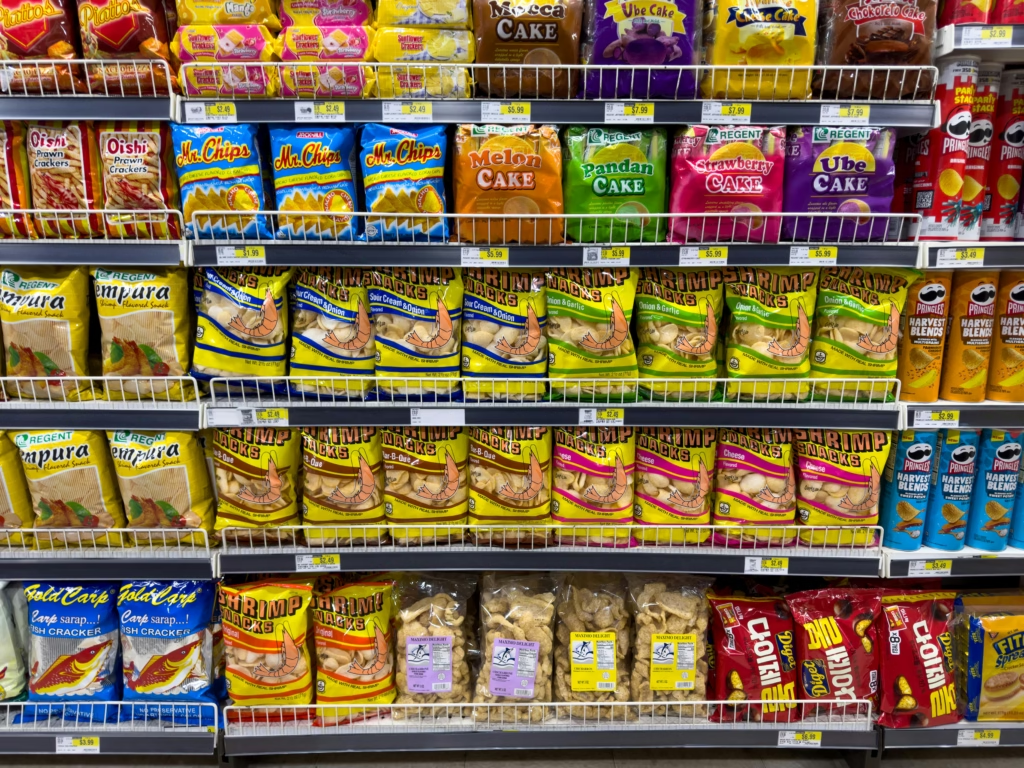
- Health risks: Loaded with sodium, trans fats, and refined carbs; linked to hypertension, elevated cholesterol, and weight gain.
- Evidence: UPF consumption contributes to around 500 extra calories per day—enough to gain ~1 pound/week.
3. Processed Meats (Hot Dogs, Sausages, Bacon)

- Health risks: High in nitrates/nitrites, saturated fats; strongly associated with colorectal, stomach, and pancreatic cancers.
- Evidence: Classified as Group 1 carcinogens by IARC; linked with colorectal cancer via nitroso‑compounds.
4. Sweetened Breakfast Cereals & Pastries

- Health risks: Rich in sugars and refined flours; connected to obesity, disrupted blood sugar, and increasing all‑cause mortality.
- Evidence: High UPF consumption corresponds to a 4 % rise in all‑cause mortality; sweetened breakfast foods are key contributors .
5. Fast‑Food Meals (Burger, Fries, Pizza)
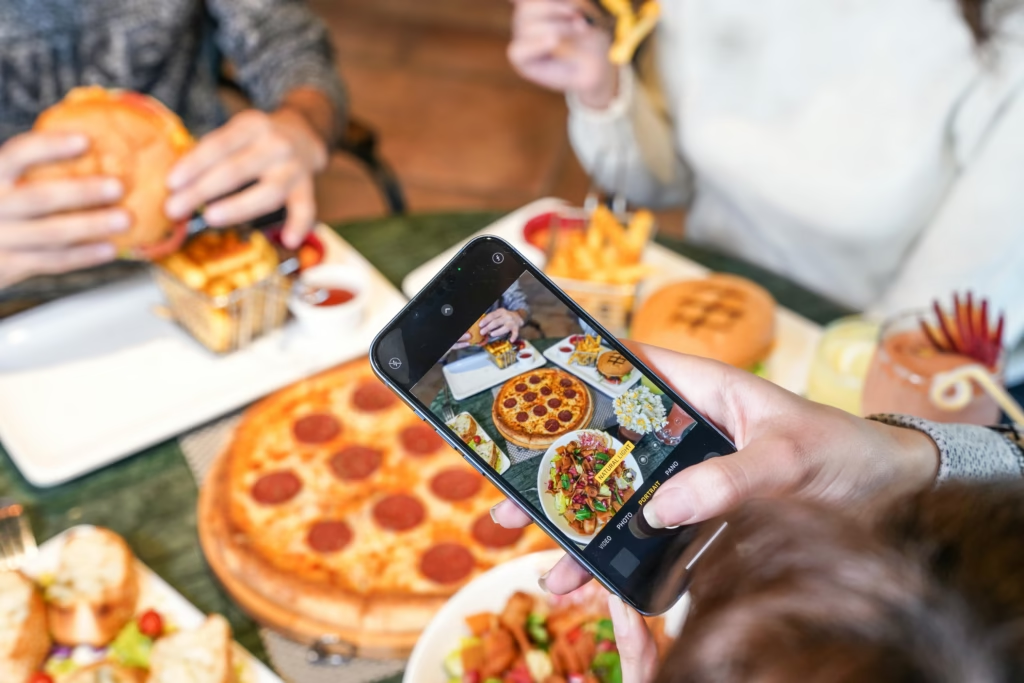
- Health risks: Energy‑dense, high sodium, saturated fat; associated with heart disease, hypertension, and type 2 diabetes.
- Evidence: A meta‑analysis revealed each 10 % increase in UPF intake increased cardiovascular disease risk—heart attacks, strokes—by about 6–12 %.
6. Store‑Bought Breads & Baked Goods
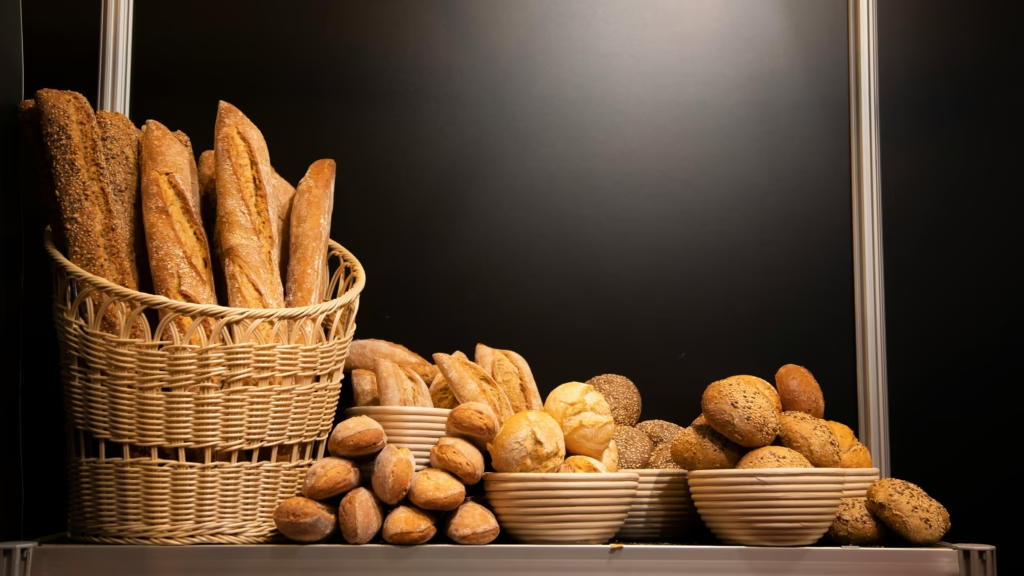
- Health risks: Often contain emulsifiers, artificial additives, refined carbs; may affect gut microbiota and metabolic health.
- Evidence: Rising UPF consumption can disrupt the gut microbiome and exacerbate inflammation.
7. Candy & Confectionery

- Health risks: Loaded with sugar, artificial colorants like titanium dioxide; linked to oxidative stress, endocrine disruption, and metabolic damage.
- Evidence: A new study highlights titanium dioxide’s potential to damage DNA and disrupt gut hormones—even banned in the EU, but still prevalent.
8. Instant Noodles & Ready Meals
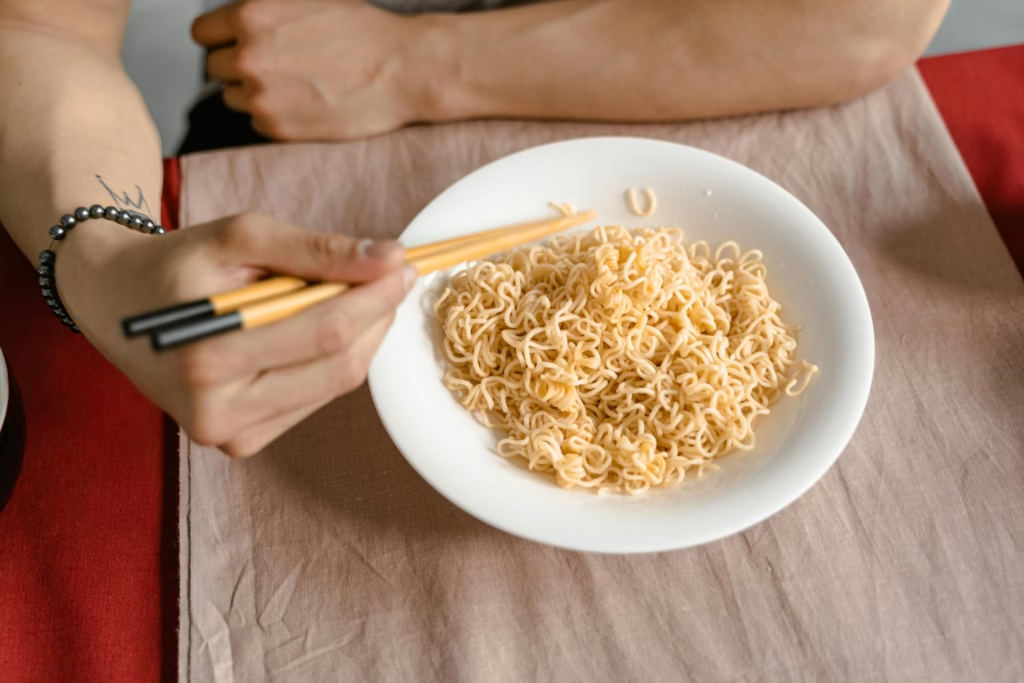
- Health risks: High in sodium, MSG, flavor enhancers; linked to hypertension, cardiovascular disease, and weight gain.
- Evidence: UPFs with additives promote calorie overconsumption via brain‑reward mechanisms.
9. Soda—Diet & Artificially‑Sweetened
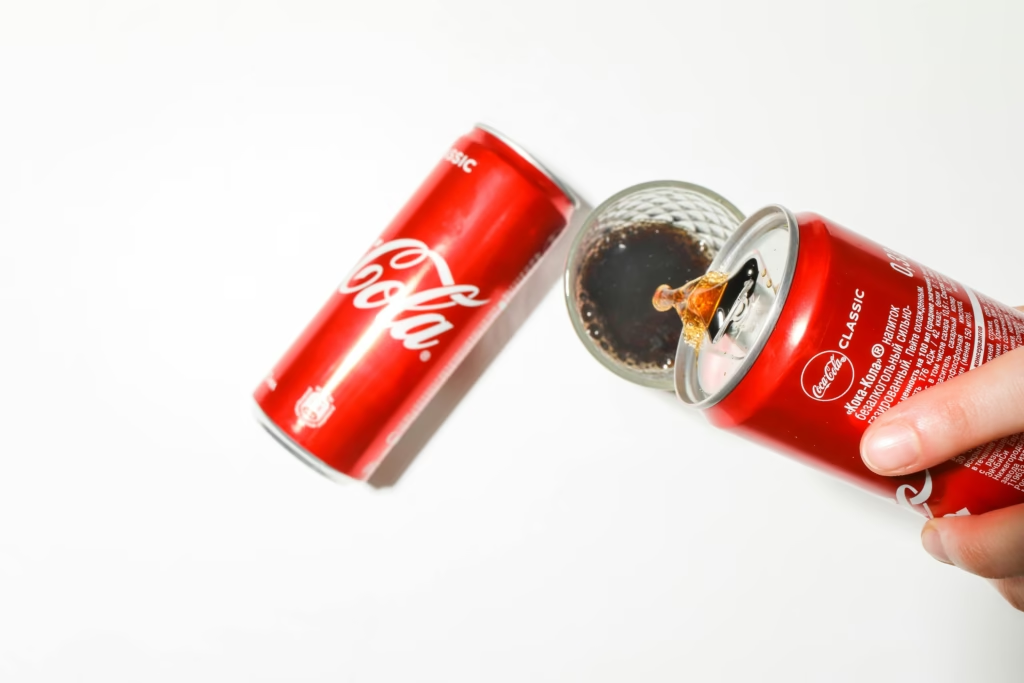
- Health risks: Though sugar‑free, they contain artificial sweeteners and additives linked to metabolic disruption, gut imbalance, and mental health concerns.
- Evidence: Data show artificially sweetened beverages (UPF subgroup) increase all‑cause mortality and adverse cardiometabolic outcomes.
10. Flavored Snack Bars & Protein Shakes
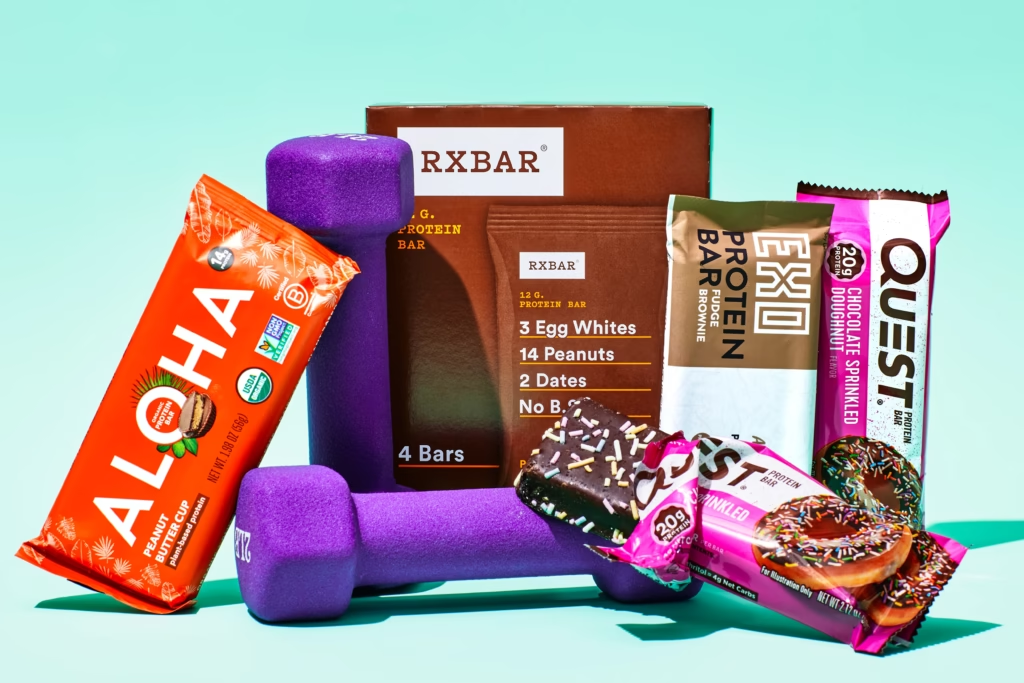
- Health risks: Often high in sugar, emulsifiers, artificial flavors; minimal real nutrition; may contribute to weight gain and metabolic disorders.
Conclusion
A growing body of evidence highlights that ultra‑processed foods pose serious long‑term health risks. By reducing their intake—and emphasizing minimally processed whole foods—we can significantly improve our health outcomes. Whether it’s homemade meals, whole fruits, or simply skipping the soda, every mindful choice counts.
For more detailed guides and tips, explore trusted nutrition websites like Harvard Health, WHO reports, and recent NIH clinical trial findings. Take action today—your future self will thank you.
Read more trending HEALTH NEWS here
![]()
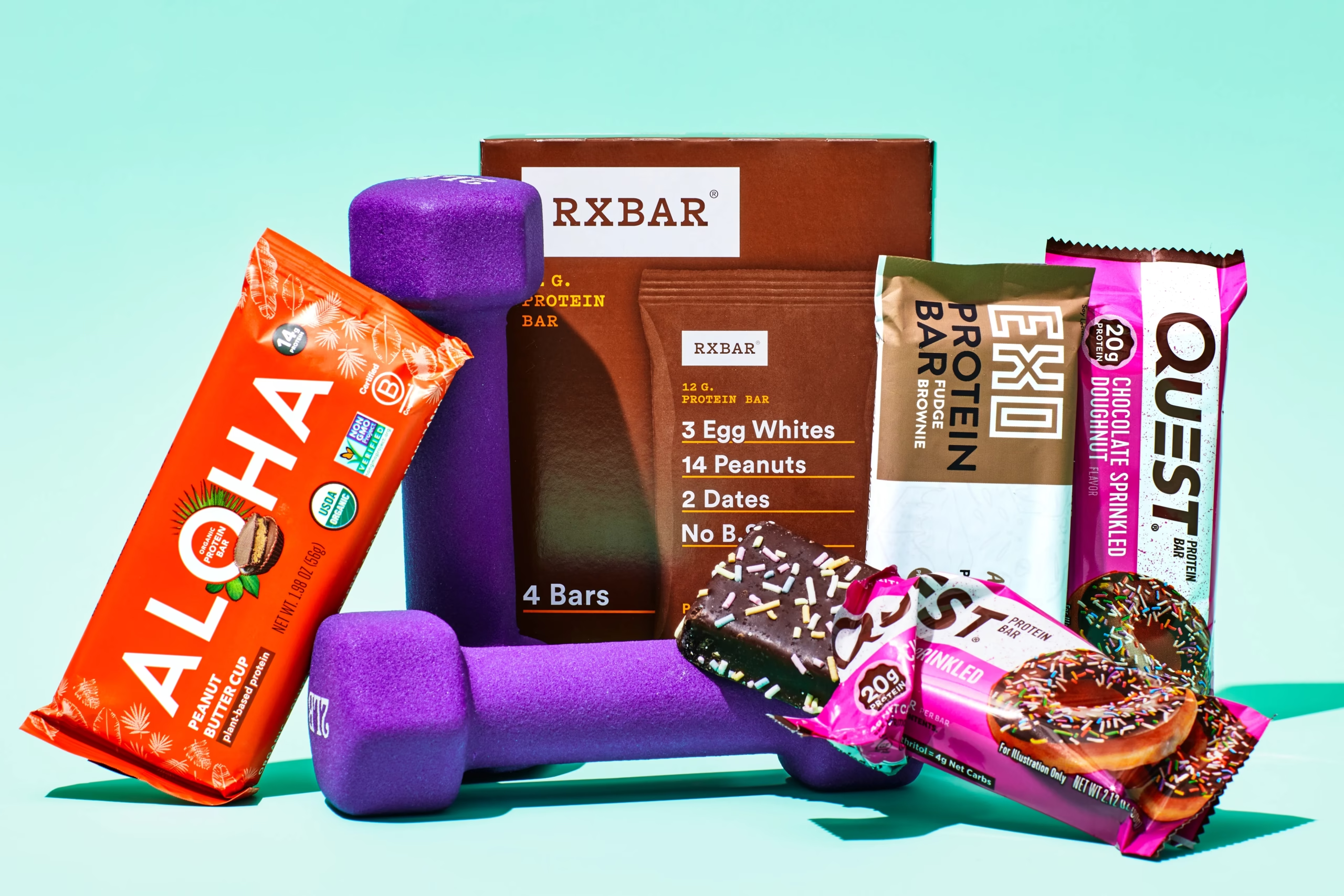


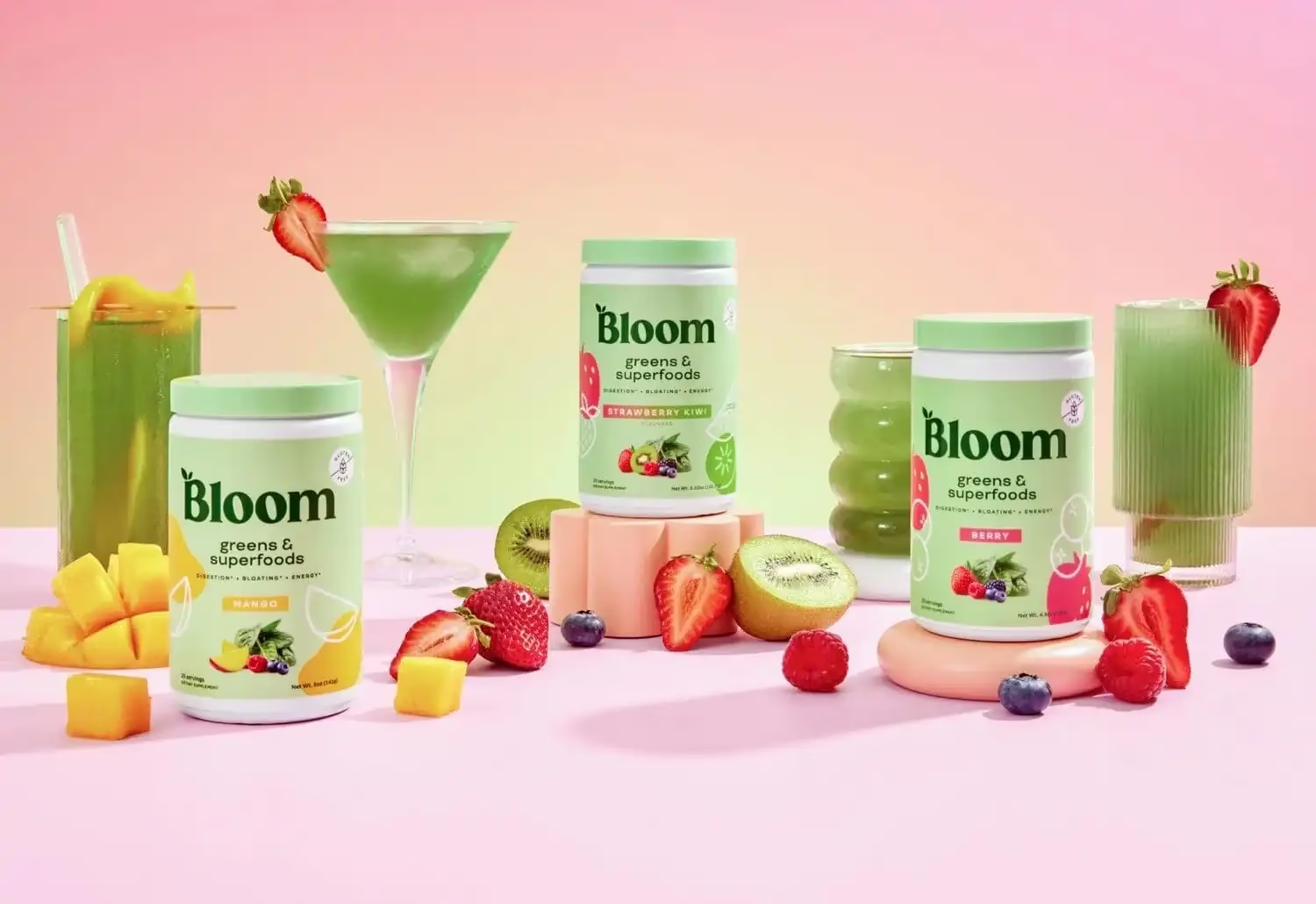
Hi top10trending.com,
You’re providing such valuable content for your readers.
We assist website owners and bloggers to get genuine, niche-specific traffic and convert visitors into potential clients. Using the same method that reached you — posting focused blog comments and contact form messages in your niche and location — our chatbot engages these visitors automatically to capture leads efficiently.
As a special offer, if you purchase our chatbot service (normally $69, now $49), simply tell us your website, and we will handle the comment and contact form service for you. We’ll create 1000 custom comments and messages to bring visitors interested in your niche and location — globally.
We provide chatbots for many niches: general chatbots, real estate, dental, education, hotels & tourism, bars, cafés, automotive, and more.
See the full system here: https://chatbotforleads.blogspot.com/ — it shows exactly how the traffic and lead generation works in action.
Appreciate your attention, and Wishing you more engagement and growth with your content.